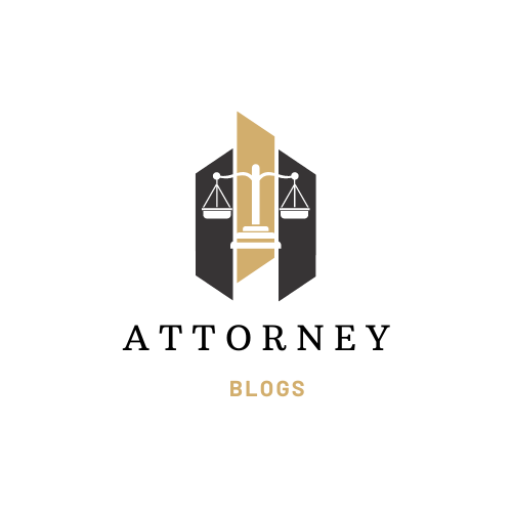Introduction
Estate planning has historically ensured financial and familial security. The digital age complicates estate management. Digital assets, online privacy, and legal technology have modified estate planning attorneys’ roles. We explain how solicitors have responded to these changes and how they remain vital to estate planning. The role of attorneys is to safeguard justice by navigating the labyrinth of the law.
Knowing Digital Estate Planning
Estate planning arranges and administers assets and liabilities to accomplish post-death goals. Bank accounts, real estate, and personal goods were traditionally included. New asset types and issues have complicated the process but provided digital opportunities.
The evolution of traditional assets
Estate planning used to focus on homes, cars, jewels, and bank accounts. These assets were straightforward to locate, evaluate, and distribute per the deceased’s wishes.
The Digital Asset Boom
Assets now go beyond cash and property. An individual’s inheritance includes Bitcoin, social network accounts, photo galleries, and online firms. Estate planning must consider these assets since they are financially and emotionally beneficial. This demands complex estate planning from experienced attorneys.
Digital Law Issues
Digital Inheritance Laws
Estate planning in the digital age raises legal difficulties. Digital inheritance laws vary widely and change often. These rules govern digital asset inheritance and access. Attorneys must follow these changes to ensure estate plans comply with laws and represent clients’ wishes.
Access Online Accounts
Internet access after death is a serious concern with digital possessions. Many online platforms restrict access due to privacy and TOS. Attorneys are needed to lawfully transfer digital assets in estate planning. They can prepare legal documents authorizing executors or beneficiaries to manage online accounts, avoiding probate.
Digital Asset Transfer Security
Also troublesome is digital asset transfer security. Physical assets are harder to lose, delete, or steal than digital ones. Attorneys must protect beneficiaries’ assets. Encrypt and secure digital assets, build up digital vaults and provide clear instructions for accessing and managing them.
Privacy/security issues
Data in digital assets must be protected. Long after the account holder dies, these assets must be secured. Attorneys must protect privacy and secure digital asset transfers in digital estate planning. Understand and mitigate digital asset management risks and stay updated on cybersecurity rules. The role of attorneys is to safeguard justice by navigating the labyrinth of the law.

Legal Issues and Digital
Expertise in Digital Estate Planning
Digital estate planning needs solicitors because digital assets complicate it. They expertly find, evaluate, and manage digital assets. This requires knowing about digital asset technologies and regulatory developments in this fast-changing market.
Digital Asset Legal Documentation
Attorneys properly document digital assets in estate planning. It involves creating detailed digital asset lists, wills and trusts, and legal mechanisms to transfer them. Thus, they avoid disagreements and manage digital assets according to the decedent’s wishes.
Working with Techies
Technology specialists and attorneys can address digital asset challenges. Cybersecurity professionals, IT specialists, and digital archivists may collaborate to safeguard digital assets, online accounts, and crucial digital material. Digital estate planning benefits from interdisciplinarity. The role of attorneys is not just to defend, but to enlighten and empower those they represent.
In Modern Estate Planning, Attorneys
The digital age has increased the number of estate planning legal counsels. Asset identification, legal documentation, and estate execution require their expertise.
Identification/Valuation of Assets
Estate planning attorneys must help clients evaluate their assets. People have more digital assets, in the digital age making this work harder. Attorneys check these assets for estate planning accuracy.
Complete Legal Document Drafting
Documents must handle traditional and digital assets in the digital age. Attorneys include all digital asset requirements and offer management and distribution directions.
Legally Comply
Legal compliance is key to estate planning. Attorneys make sure estate plans follow digital asset laws. Digital inheritance laws, privacy restrictions, and cybersecurity procedures must be followed to protect the estate and its beneficiaries.
Managing Digital Assets
Digitized assets complicate estate planning. These assets must be managed and included in the estate plan by attorneys. Digital technology has changed estate planning, needing legal expertise.
Digital Asset Types
Bitcoins, online banking accounts, social media accounts, and photo galleries are digital assets. Access, maintenance, and death transfers vary for each digital asset. Attorneys help clients organize their assets for estate planning.
Cryptocurrencies, online banking
Online banking and Bitcoin and Ethereum are popular digital assets. These are expensive and sophisticated, requiring strict documentation and secure access. In every legal battle, the role of attorneys is to be both a shield and a beacon of hope.
Digital photo libraries and social media
Personal digital estate includes Facebook, Twitter, Instagram, Google Photos, and iCloud photo collections. Due to their emotional value, they need specific handling and transfer instructions.
Online Businesses and IP
Online businesses, blogs, and other digital IPs can be profitable. Solicitors guarantee estate plans contain asset management or sale processes.
Access/security
Safely accessing digital assets for heirs is tough. Attorneys create legal frameworks to protect digital assets. Digital asset instructions and security measures are usually needed.
Allowing Safe Access
Attorneys safeguard heirs’ digital assets using encryption and multi-factor authentication. MFA requires several authentication methods and encryption safeguards sensitive data.
Secure Passwords and Digital Vaults
Attorneys recommend secure password management software for storage and distribution. Digital vaults protect access credentials and instructions for heirs.
Digital Asset Laws
Legal papers involving digital assets require careful language and planning. Attorneys must draft digital asset access, administration, and transfer instructions. These provisions ensure digital assets are treated as the deceased wishes and prevent legal complications.
Drafting Digital Asset Clauses
Attorneys include digital asset wording in wills, trusts, and other estate planning documents. They may govern executor and beneficiary access, administration, and transfer.
Legal and Privacy Compliance
Legal papers must respect privacy and follow laws. Attorneys guarantee that all activities comply with digital inheritance and data protection laws by creating digital privacy safeguards.
Avoiding Court Battles
Heirs and others benefit from clear laws. Attorneys define digital asset access and management to avoid legal concerns. Clarity is essential for digital materials, which might be misinterpreted.
Technology’s Impact on Estate Planning
Technology has greatly enhanced estate planning efficiency and accessibility. These improvements have pushed solicitors to improve services and client service with technology. Digital technology, online legal services, and cybersecurity have changed estate planning.
Tools and Software Digital
Modern estate planning uses digital applications. Attorneys may streamline document creation, client administration, and asset inventory using these tools. Technology helps solicitors design estates more accurately and efficiently.
Simplifying Docs
Digital technology helps attorneys create legal documents quickly and accurately. Automation and templates save time by creating standard clauses and forms. This efficiency ensures clients receive high-quality documents quickly.
Managing client info
Attorneys keep detailed records using client management software. This system secures and retrieves all vital client data. Tracking deadlines and appointments improves client service.
Asset Inventory Tracking
Advanced software lets solicitors track assets. To prevent missing anything, this includes traditional and digital assets. Comprehensive estate plans require careful surveillance.
Legal Online Services
Estate planning is easier with online legal services. Many solicitors provide online consultations and document preparation, enabling estate planning from home. This tendency has made estate planning services easier to get, making legal assistance easier.
Increasing Accessibility
Online legal services allow estate planning anywhere. This helps rural or disadvantaged people without legal ability.
Convenience and Flexibility
Online services provide customers more freedom and convenience. They may upload documents, schedule consultations, and get online guidance. Flexibility helps busy schedules and reduces estate planning time.
Cost-effective Options
Online services save lawyers and clients money. Reducing office expenses may cut attorney fees. Despite excellent legal representation, clients save.
Security Measures
Digital estate planning raises cybersecurity concerns. Attorneys defend clients’ sensitive data and digital assets with cybersecurity. Use encrypted storage, secure communication, and robust authentication to prevent data intrusions.
Safe Communication Channels
Attorneys use encrypted email and client portals to send sensitive data. These channels secure conversations and prevent data eavesdropping.
Stores encrypted
Customer data and digital assets are encrypted. Encrypted data is safe until decrypted. This prevents cyberattacks and unlawful access. In every legal battle, the role of attorneys is to be both a shield and a beacon of hope.
Authentication Strength
Multi-factor authentication boosts security. With MFA, users must enter several IDs to access critical data. Unauthorized access is eliminated, improving digital estate planning security.
Digital Estate Planning Ethics
Digitalization has altered inheritance planning. To provide ethical legal services, attorneys must address these challenges.
Private and secret
Digital asset management, especially estate planning, demands confidentiality. For client privacy, solicitors must not share sensitive information without consent. This requires strong data protection and client digital data security education.
Duty of Care
Attorneys serve clients as fiduciaries. Give proper advice on managing and transferring digital assets and satisfying digital estate planning legal requirements. Attorneys must stay updated on digital asset management and inheritance rules for fiduciary duty.
Conflict of Interest
Planning an estate requires avoiding conflicts of interest. Attorneys must spot and resolve issues, especially with complex digital assets. They must declare any conflicts that might skew their legal advice.
Future Estate Planning Trends and Lawyers
Estate planning trends must be followed by attorneys to serve clients properly. New challenges and opportunities require solicitors.
In AI and Automation
AI and automation will change estate planning. AI can construct legal documents, assess asset portfolios, and predict legal issues. These technologies will help attorneys provide legal advice faster, more accurately, and more personally.
Blockchain, Smart Contracts
Estate planning is expanded by blockchain and smart contracts. Safe, transparent, and tamper-proof asset management and transfer are possible with these technologies. Attorneys will facilitate the installation and legal use of this technology.
Changes in Law
Legal changes will follow the rise of digital assets. Digital inheritance, data privacy, and cybersecurity laws change, therefore attorneys must stay current. This knowledge will allow them to provide current legal advice and ensure their clients’ estate plans conform to current laws.
Conclusion
Digital estate planning attorneys are more complex and crucial. Attorneys concentrate on asset identification, legal documentation, and estate execution as digital assets proliferate and technology develops. They comply with legislation, manage digital assets, and maintain estate planning ethics. Technology and staying ahead of trends can help solicitors secure their clients’ legacies in the digital era. In every legal battle, the role of attorneys is to be both a shield and a beacon of hope. The pivotal role of attorneys is to translate complex legal jargon into accessible justice.

